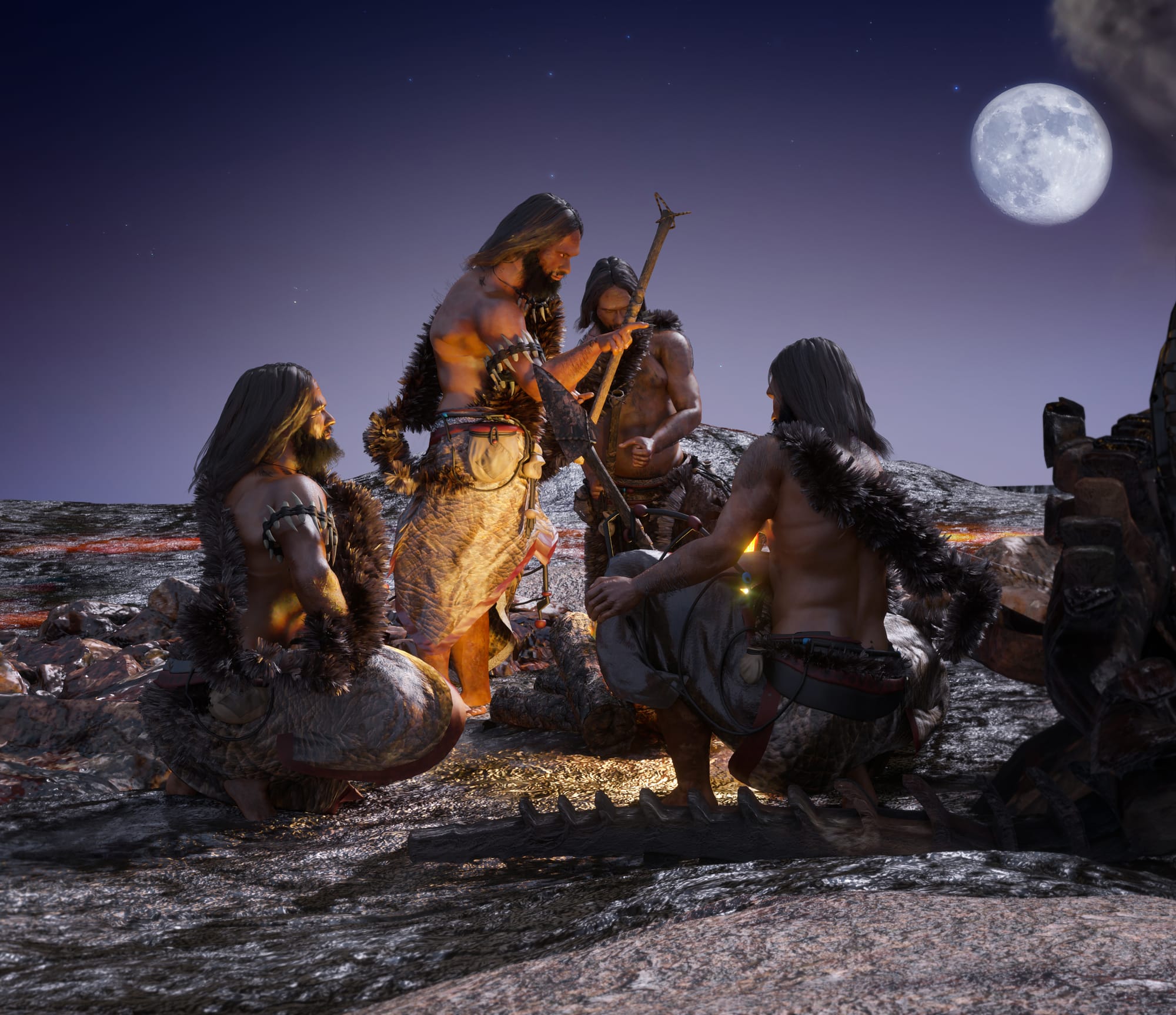LITANY

The laws of the People are ancient. Their traditions vary from tribe to tribe, but all Garou must remember and hold to the central code of law called the Litany. In its full form, it is as much an epic poem as a legal code.
Chanting it in its entirety can take hours. Four times a year, the werewolves of the Fianna tribe gather in their tribal homelands to recite it in its entirety. While it takes the greatest scholars to master the entirety of the Litany, most werewolves learn it in the form of 13 basic precepts.
Each precept has a practical basis, but not all of them are universally upheld as unquestionably moral. Each tribe has its own views on right and wrong. In fact, many perceive a hypocritical gap between what Garou elders preach and what werewolves actually do. Masters of Garou law can cite dozens of examples of precedent, but as fewer cubs learn to chant the details, more argue ways to bend the rules in their favor.
Tenets (Werewolf: The Apocalypse 20th Anniversary Edition, p. 50-52, 69)
The Tenets are as follows:
- Garou Shall Not Mate With Garou (see Metis entry)
- Combat the Wyrm Wherever it Dwells and Whenever it Breeds
- Respect the Territory of Another
- Accept an Honorable Surrender
- Submission to Those of Higher Station
- Respect Those of Lower Station, for all are of Gaia.
- The First Share of the Kill for Greatest in Station
- Ye Shall Not Eat the Flesh of Humans
- The Veil Shall Not Be Lifted
- Do Not Suffer Thy People to Tend Thy Sickness
- The Leader May Be Challenged At Any Time During Peace
- The Leader May Not Be Challenged During Wartime
- Ye Shall Take No Action That Causes a Caern to Be Violated
NOTE: For more detail on the Tenets, Click Here.
The Veil
Among werewolves, the Veil is poetic term for the false assumption that the supernatural does not exist in the World of Darkness, which the Delirium reinforces. The Veil was formally instituted through the Concord of nine thousand years ago, which ended the Impergium. The Litany states clearly that "The Veil Shall Not Be Lifted".The Veil is similar to the concept of the Masquerade among Kindred. Delirium helps in keeping the Veil in place. Harming or rending the Veil means a great loss of honor among the Garou, while repairing the Veil means the opposite.
Delirium
For over three thousand years, Garou preyed on humans. Even though most humans have no idea that werewolves exist, some part of the collective unconscious remembers those millennia of terror called the Impergium. The Crinos hybrid form, an avatar of bloody death, incites a kind of madness in humans that Garou call the Delirium.
Stronger-willed people can deal better with seeing a werewolf than most. The majority of humans panic and run, or collapse into a catatonic fear. Even those who can control themselves will forget the encounter later, either by rationalizing what they saw as a bear or by forgetting the whole incident. This subconscious denial is a supernatural force that the Garou dub the Veil, and they look at it as one of their greatest assets.The Delirium only affects people who can see the werewolf in person. Photographs, video (live or recorded), or other such evidence won’t trigger any fear reaction. Human witnesses will rationalize the evidence away as a Photoshopped image or a publicity stunt, unless their Willpower is 8 or higher. The Delirium is also tied to the Impergium, and therefore, shifters such as the Kitsune, who did not participate, do not trigger the Delirium. Certain aboriginal cultures whose ancestors weren't part of the Impergium also do not trigger Delirium.Delirium is invoked as soon as the person sees the shapeshifter. This includes if the shapeshifter shifts in the presence of someone. The only exception is the Crawerling form of the Ananasi or the Microchiptera form of the Camazotz. Simply seeing the multitude of spiders or bats will not cause Delirium. It will invoke if the shifter shifts to or from that form. Kitsune took no part in the Impergium and therefore they do not induce Delirium in any form.
Delirium Effects
How a human acts when faced with a Crinos werewolf depends on his Willpower score. The chart below indicates how a human will react, to what degree the human will remember his encounter, and what percentage of the populace will react in this way. A few humans may be desensitized to the worst of the horror of seeing a Crinos werewolf through their studies of the occult. Members of cultures that didn’t suffer the Impergium to a great degree (such as Native Americans and Aboriginal Australians) might also be granted a bonus to resist Delirium — though only if they’ve been raised without contact with other cultures.
|